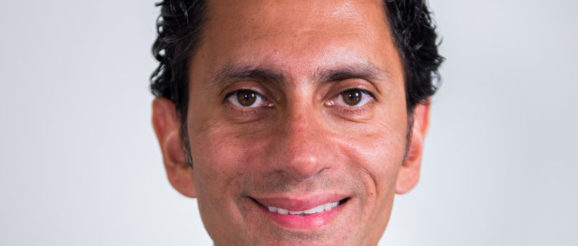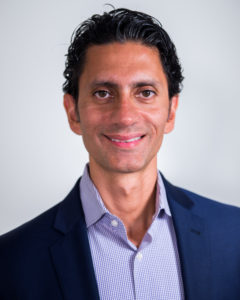Prognos CEO: Healthcare Is Overdue For Innovation Disruption


Sundeep Bhan always knew he’d be around medicine. After all, there a lot of doctors in his family and he went into pre-med himself. But the CEO of Prognos, a healthcare AI company, figured he’d have a bigger impact if he got into the business and technology side of healthcare, rather than donning a stethoscope.
Thus one year out of college, Bhan founded Obelisk Interactive, which offered multimedia medical education software on CDROMs. Later, he founded and ran Medsite, also in the medical education space, which ended up getting bought by WedMD in 2006. A few years after that, Bhan and his cousin Jason (a family medicine physician), founded Medivo, later changing the name to Prognos, which leverages AI in an attempt to predict disease at its earlier stages.
The company works with pharma companies and health plans, which use insights that Prognos gleans around disease risk factors, both at an individual and a population level. For pharma companies, Prognos will help them identify useful therapies that will help a certain patient population. For health plans, it will identify patients that are at risk for complex (and costly) diseases.
Bhan recently spoke with Chief Executive about the big tech disruptors in healthcare, challenges he faces on a day-to-day basis, and more. Below are excerpts from the interview.
Why focus on the predictive side of health?
It’s from different perspectives. One is from the patient perspective. Healthcare is something that all of us, directly or indirectly, have been impacted by. Everybody, in their own personal journey, there’s something happens along the way or a loved one gets sick. And every time, if you think about like cancer as a disease, the worst outcomes are always when people say, “Oh they found out and it was too late by the time they found out.”
I think that we know the earlier you know what’s going on, the better your chances of us having a better outcome are, right? From that sort of patient and people perspective, it’s almost like, “Hey, if we could help understand what’s going on with somebody earlier, it would lead to a better outcome.” And then, how early can you go? Can you go as early as being able to predict who could be at high risk for something? And imagine if you know then, that could give you the best chance for having a great outcome.
From the other side of having been in the industry, and when you talk about what are the biggest issues with the healthcare system, it’s that the costs keep rising and the outcomes are not getting any better. So, even as an industry, when we’re making decisions, what do we base that information on? Most of that information is really the big data sets that are out there around medical billings and claims information and medication history. And the problem with that is that those are great for trying to understand what’s happened in the past, but by their nature, they are after the fact. So, you’re looking back at what’s already happened.
If could then work with a data set that can help inform what’s going on earlier, it would lead to better decisions. So, if you’re going to figure out, what drug will work the best on somebody, well it’s better to figure that out before that drug is prescribed.
There’s been a lot of disruption in healthcare from some of the big tech companies, Amazon, Apple, etc., etc. Why do you think that is? And is that a good trend or a bad trend?
I think it’s great and I think it’s about time because healthcare has been limited in how technology has been utilized. When we look at other areas of our lives, you can get recommendations on an e-commerce site based on not only yours, but other people’s buying behavior. And if you can have a great sort of customer service experience, you expect that in all other parts of your life, right? You want the same things from your bank and you should want the same thing from your doctor and your hospital.
Healthcare is very different. It’s highly regulated. You’re dealing with people’s lives. So, you know, obviously there’s more scrutiny around what you can and cannot do. And understandably because, you know, the safety risk, it’s very different. Getting the wrong shipment to your house, if it’s a book or something, while you may not feel great about it, that’s not a matter of life and death vs. getting the wrong medication. So, I think if you think about it, yes, so the bar is higher and regulations are there to make sure that people are safe.
But that does create sort of barriers in the adoption of innovation in healthcare. Once you get through all that, there’s tremendous opportunity because it is the largest segment of our economy and just the largest industry. So I think the big tech companies are looking at where they’ve had success and how they can bring that to the healthcare market. I think they’re looking at how innovation can help sort of scale things in healthcare.
The post Prognos CEO: Healthcare Is Overdue For Innovation Disruption appeared first on ChiefExecutive.net.
